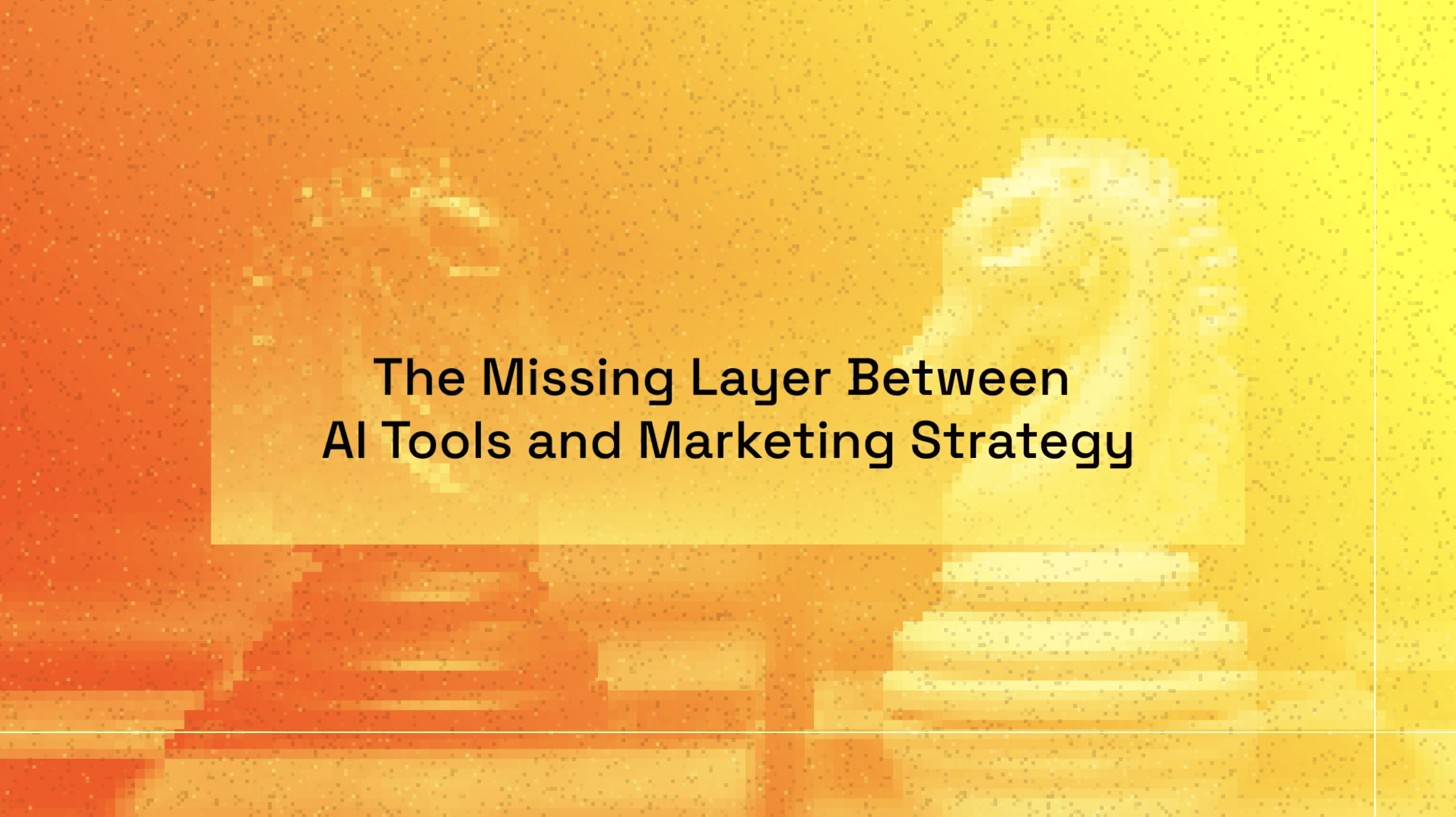
The agency model is fundamentally broken, and it’s had me thinking about it a lot lately.
Blake Minho Kim
Co-Founder
Mar 27, 2025
The agency model is fundamentally broken, and it’s had me thinking about it a lot lately.
Three years ago, when Simon approached me about building a marketing DAO, my first question was simple: "What problem are we actually solving?"
The answer became clear – agencies scale terribly, and the entire model creates misaligned incentives that ultimately hurt both the client and the talent.
I've seen this firsthand. The traditional agency playbook looks something like this:
Hire a bunch of FTEs
Lock clients into bloated retainers
Extract maximum value from employees until they burn out
Then backfill with freelancers who get no equity or upside.
It's a model designed to benefit partners at the expense of everyone else – clients included.
So we decided to build something different—not just a better agency, but an entirely different model (what I call the "anti-agency network”).
Why Traditional Agencies Break at Scale
The reality is, you can run a great boutique agency with 5-20 people. The problems emerge when you try to scale beyond that point.
Here's what inevitably happens:
The talent trap – As agencies grow, they hire for availability rather than expertise. The result? A team staffed with generalists who are "good enough" rather than specialists who excel.
The leadership disconnect – Partners who once delivered work start spending all their time on pitches and rebrandings.
The cash flow dilemma – Services revenue is lumpy. One month you're thriving, then you lose a big client and suddenly have a massive hole in your balance sheet. This creates panic-driven decision-making.
The pattern repeats across the industry. Look at what happened with many web3 agencies that started strong, then became distracted by their own token launches, rebrandings, and founder visibility rather than client outcomes.
The Network Advantage: Building an Anti-Agency
What if there was a different approach? What if instead of the traditional hierarchical model, we created a network of the best marketers globally who could flex in and out of projects based on actual needs?
That's exactly what we built with Myosin – a marketing DAO where everyone is aligned through shared incentives, reputation systems, and community trust.
The advantages are clear:
Expertise over availability – We only deploy people with the exact skills needed for each project. No more forcing a content writer to handle community management just because they have capacity.
Flexibility without compromise – Our network can scale up or down based on client needs without the overhead of full-time employees sitting on the bench.
Aligned incentives – Everyone in our network benefits from collective success through reputation building and (soon) token ownership. There's no extractive layer at the top.
Global talent pool – We have members in New York, Lisbon, Buenos Aires, Korea, and beyond, allowing us to match projects with the right expertise regardless of geography.
Our model creates fundamentally different dynamics. When clients come to us with complex needs, we don't try to fit them into predefined service packages. We actually listen and assemble bespoke teams of specialists who can deliver exactly what's needed.
The Proof Is in the Results
Let me share a real example. When we worked with Solana Mobile, they needed to sell out their first batch of Saga phones. Saga is the world’s first Solana phone.
A traditional agency might have proposed a broad awareness campaign with standardized deliverables. Instead, we:
Assembled a specialized team focused on direct-to-community marketing.
Activated KOLs who actually understood the Solana ecosystem
Created targeted content for developers
Drove real engagement with people who would actually buy the product.
The results?

The first batch sold out.
Their X followers increased by 263%.
They built a successful ambassador program that continued driving engagement after our work was done.
This isn't just a one-off success. We also developed the marketing strategy for RARI Chain's testnet and mainnet launches that drove their token to an all-time high. Our flexible model consistently delivers where traditional agencies struggle.
What Marketing Leaders Should Demand
If you're a marketing leader, I think you should be asking tough questions before partnering with any agency:
Who's actually doing the work? – Will the experts who pitched you be executing, or will they hand it off to juniors?
How flexible is the model? – Can they adapt if your needs change mid-project, or are you locked into predefined deliverables?
What's their incentive structure? – Are they motivated to stretch projects out to bill more hours, or aligned with your actual outcomes?
Where's the specialized expertise? – Do they have genuine specialists in your specific needs, or generalists who "figure it out"?
The most innovative projects today don't need generic marketing strategies – they need precision execution from experts who understand their specific challenges and opportunities.
The Future of Marketing Is Network-Driven
The agency model worked in a different era, but today's marketing challenges require new approaches.
As we move forward, we're taking this model even further by integrating AI as the connective tissue that powers our network. We're building systems that allow members to self-serve on opportunities, amplify their output, and navigate organizational complexity without constant human coordination.
The goal is to create a truly autonomous organization where talent can flow to where it's most valuable, free from the constraints of traditional structures. We’re fundamentally reimagining how marketing work gets done.
Time to Build Differently
So that's the anti-agency network in a nutshell. A model built on flexibility, expertise, and aligned incentives rather than rigid hierarchies and extraction. A model where everyone (clients, talent, and the organization itself) wins when work delivers real impact.
The future of marketing belongs to networks, not hierarchies. The companies that understand this shift will thrive. The rest will be stuck playing catch-up.



